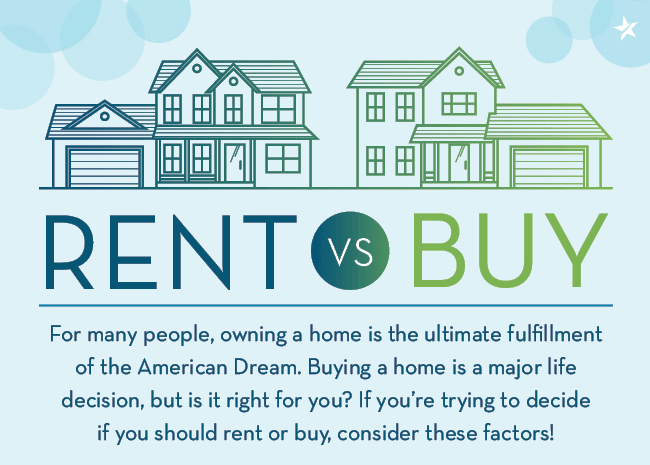

 Buyers Resource Center
Buyers Resource Center
Do you live in the Memphis Area and pay monthly rent? It might be time to start thinking about buying a home, depending on where you’d like to live. When weighing the option of renting vs. buying, economics is just part of the decision. If you are struggling with this choice, here is what you need to know.
If you are at all familiar with Memphis Area real estate, you probably know that it can be costly and competitive. It’s the same situation whether you are renting or buying. The area is popular with transplants who arrive for work and school opportunities and finding a place to live can be challenging.
Fortunately, there are tons of options. Memphis alone has a lot of trendy neighborhoods, such as Cooper-Young, South Main, Binghampton, Harbor Town and Midtown. But families can find a lot of desirable choices in cities like Bartlett, Cordova and East Memphis, all with access to public transportation.
Whether you want to live in a historic home, something brand new, or just get a roof over your head, choosing where and how you live is a big decision. Finances should certainly be part of the equation, but there are other considerations as well. When deciding between renting vs. buying in the Memphis Area, here are some of the questions you may wish to ask yourself.
Location should be a primary factor in your rent vs. buy decision. In high-priced real estate markets, renting might be the only affordable option. But, in an area like Memphis, it’s considered a better financial choice to buy a home over renting one. In addition to comparing monthly mortgage payments vs. rents, don’t forget to consider other factors like good schools, safe neighborhoods, shopping, recreation, walkability, and proximity to public transportation.
For most people, purchasing a home involves obtaining a mortgage loan. While today’s mortgages no longer require a 20 percent down payment like those in recent years, you will need some financial resources to get to the finish line. Specifically, you’re going to have to come up with the money to cover a down payment, closing costs, and moving expenses.
Qualifying for a mortgage also requires that you have an established credit history and a steady income source. If you don’t have steady employment, you may need to stick to renting until your financial situation improves.
As a general rule, if you plan to stay in your home for less than five years, renting is probably going to be the better option. In hot real estate markets with rapid price appreciation, that period might be a bit shorter.
But you’ll want to think of homeownership as an investment and commitment that returns value over the long term. Also, some homeownership assistance programs will require that you remain in your home for at least five years, or you will be charged a payback penalty.
Renting vs. buying are vastly different when it comes to responsibility and lifestyle preferences. For example, is your idea of a good time repairing a leaky faucet or replacing floors? For some people, it is. Or would you rather leave maintenance and upgrades to someone else? Do you travel frequently, where you won’t have time to lawn upkeep?
There are responsibilities with homeownership but also some benefits. As stated before, if you plan to own your home long-term, you can make upgrades that better suit your preferences and lifestyle. These might include adding a back deck or remodeling a kitchen.
But there is also a certain freedom that comes with renting. You can try out different neighborhoods until you find the one that feels like “home.” Many people find that their living preferences change over time.
If you decide that owning is the right choice for you, partnering with a title company you can trust is a vital part of the home buying process. Sure Title provides a wide range of residential real estate services, including purchase agreement services, escrow services, title services, and more.
To learn more about how we can smooth your home buying process in the Memphis Area, reach out to our team by calling (901) 881-0606. You can also fill out the contact form on our website.





Blog articles are purely for educational purposes and provides generalized information of the topic(s) covered. These articles should not be considered as legal advice.
